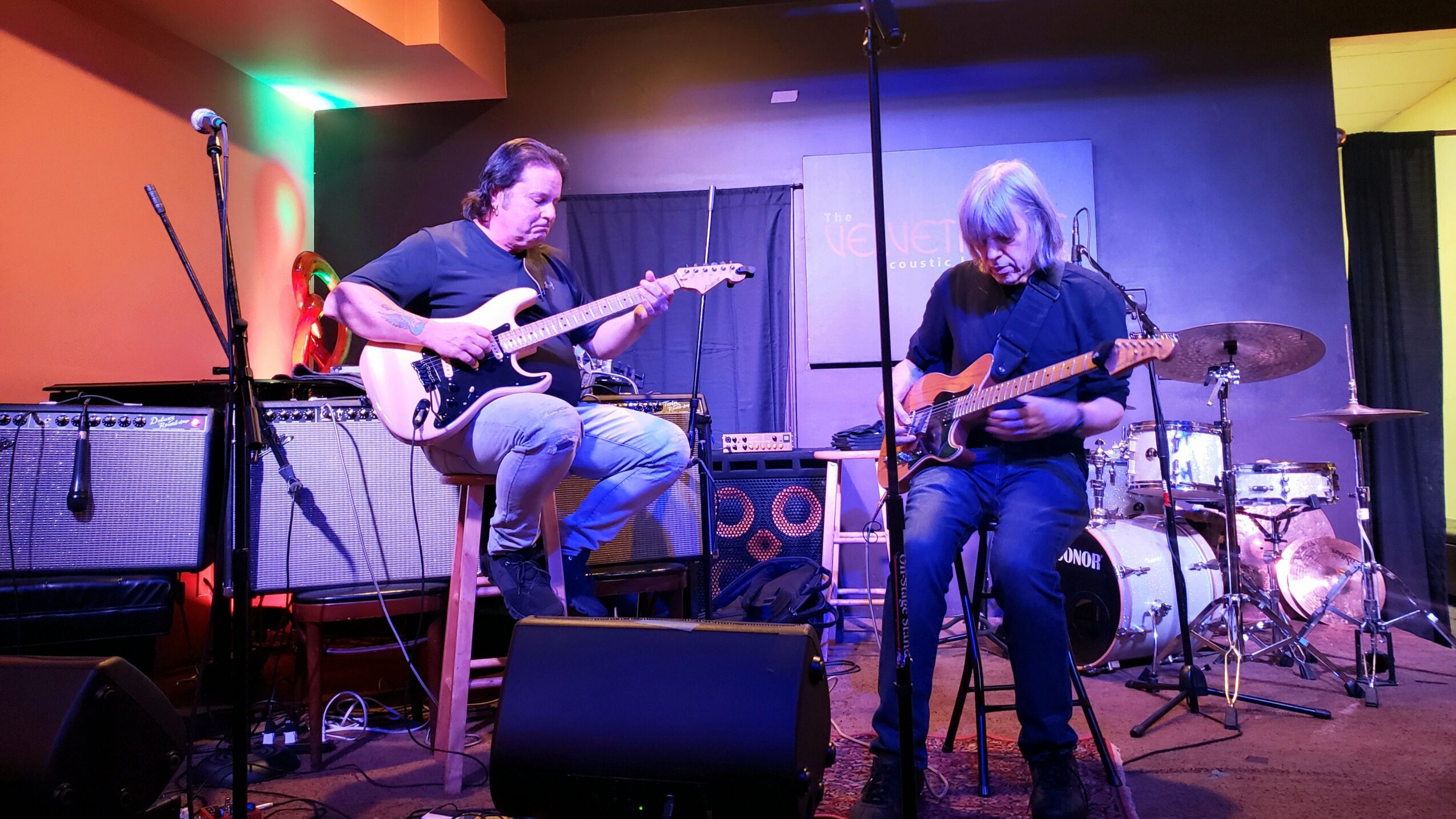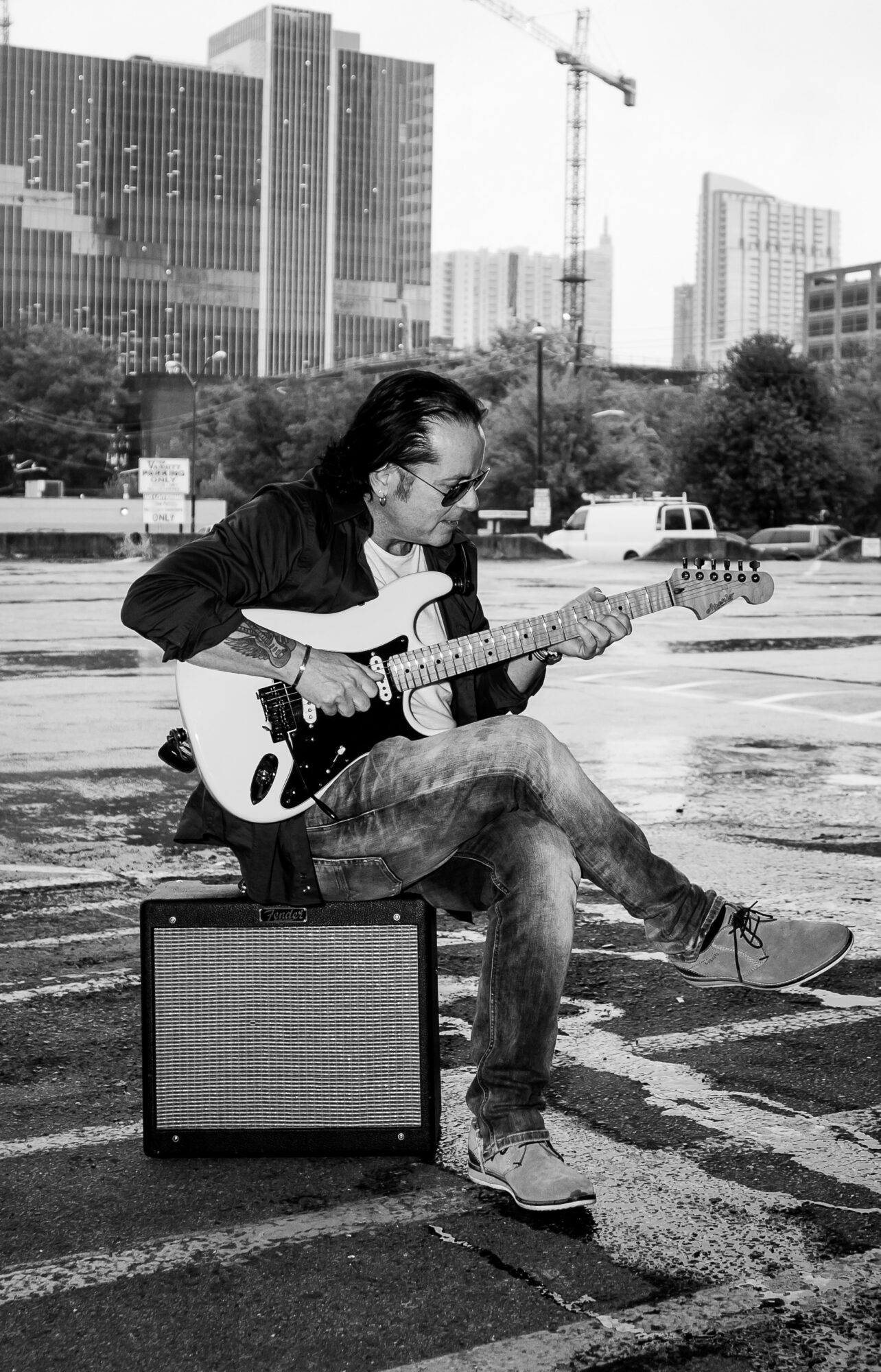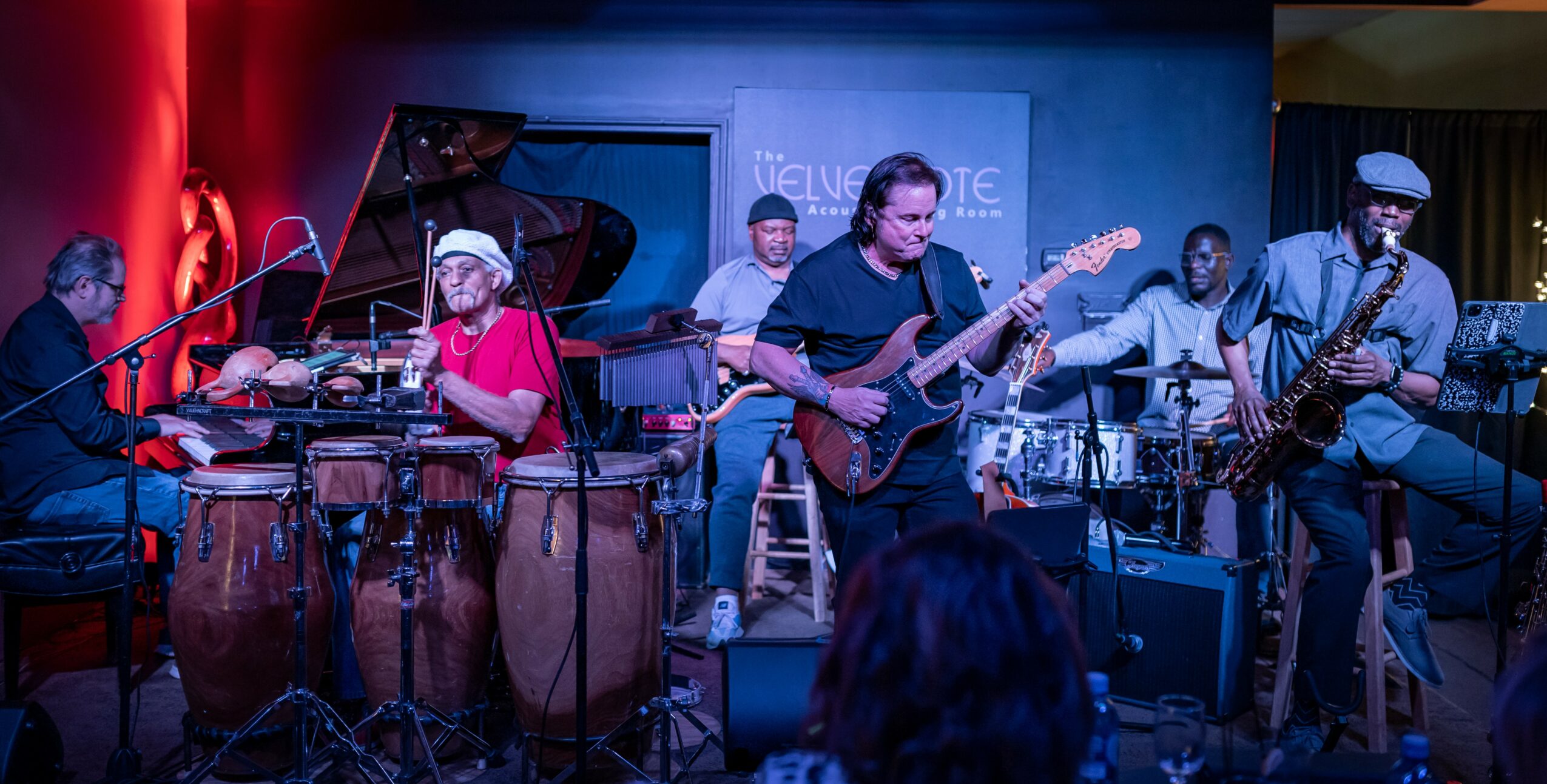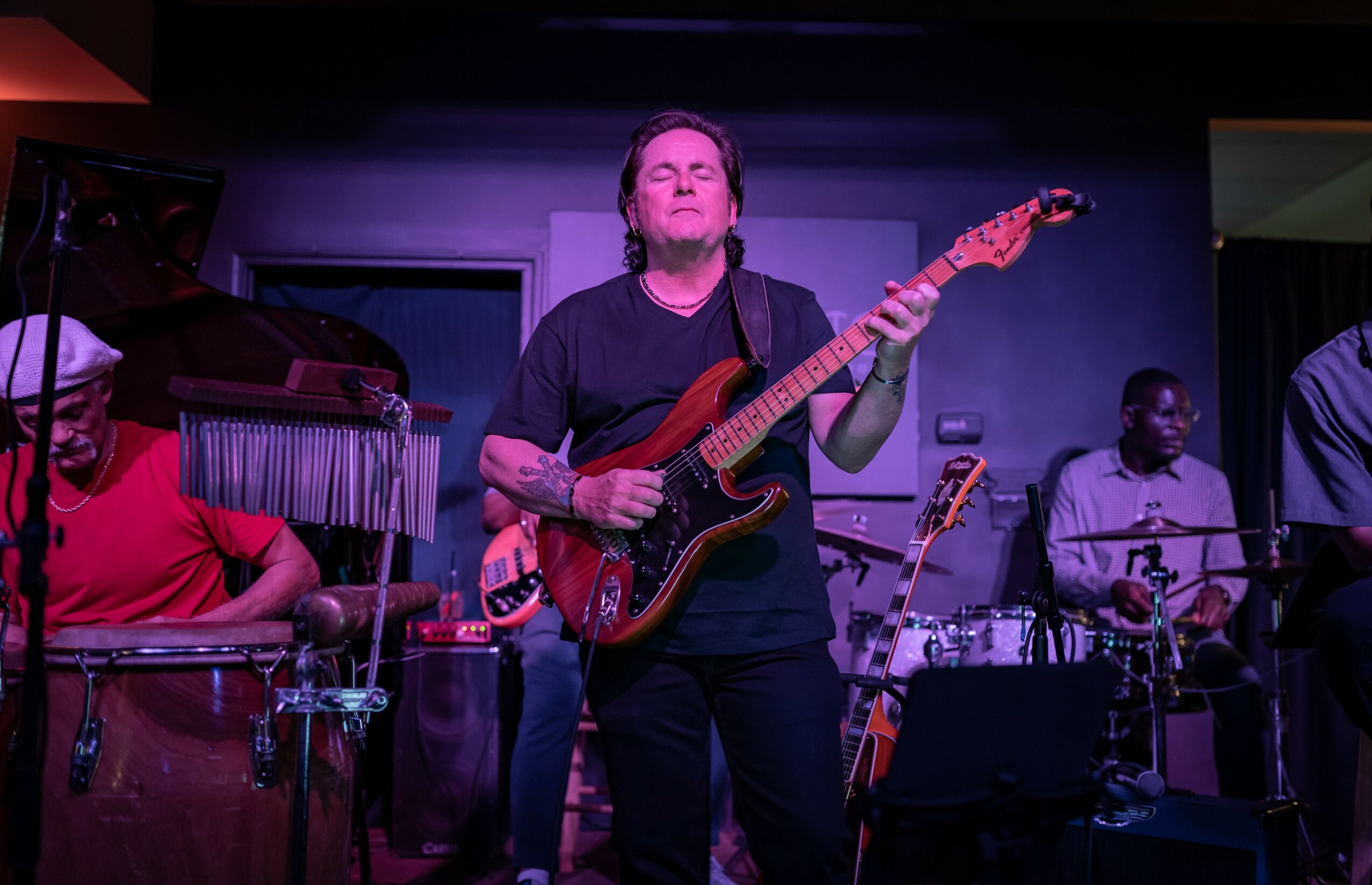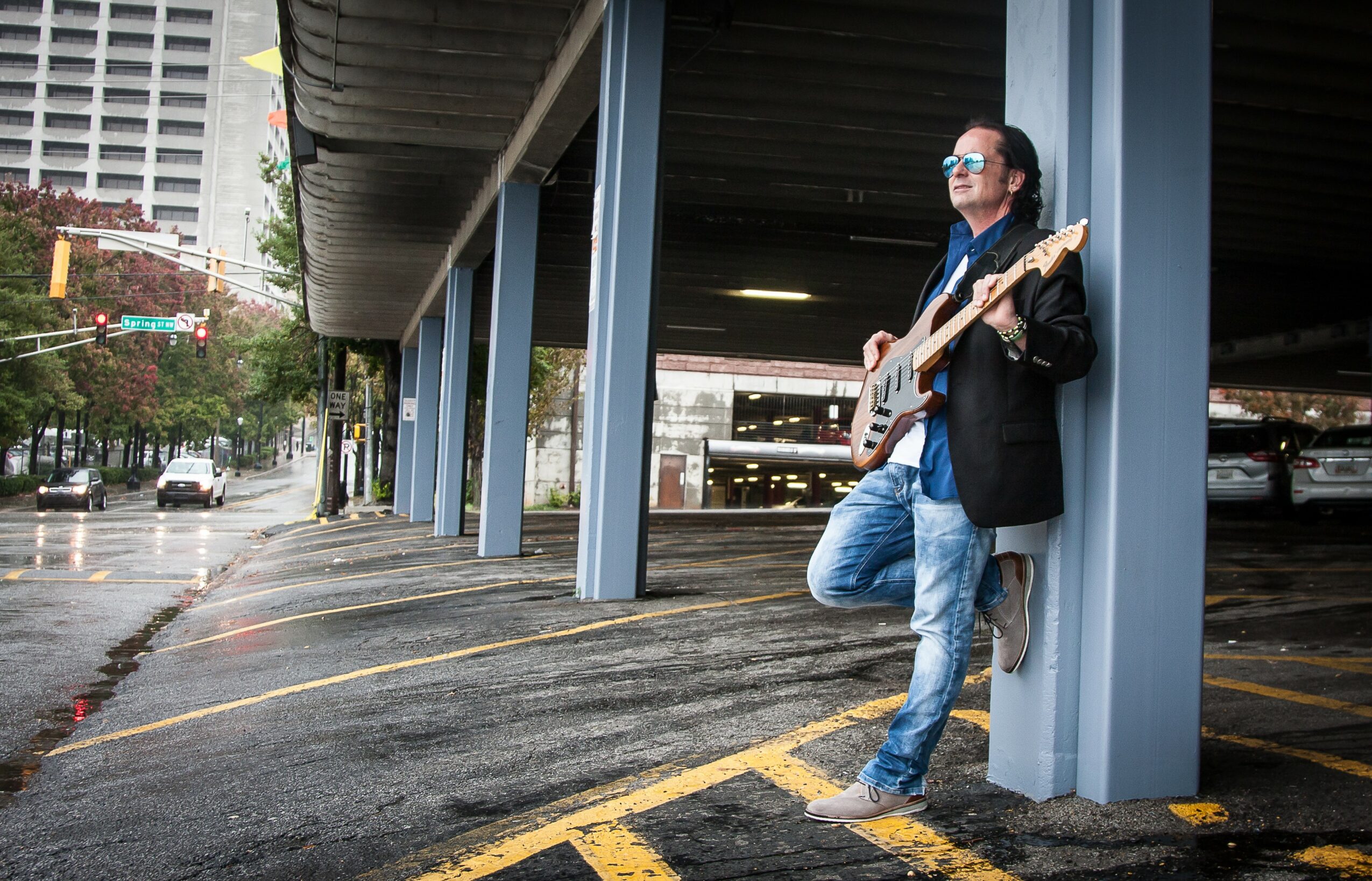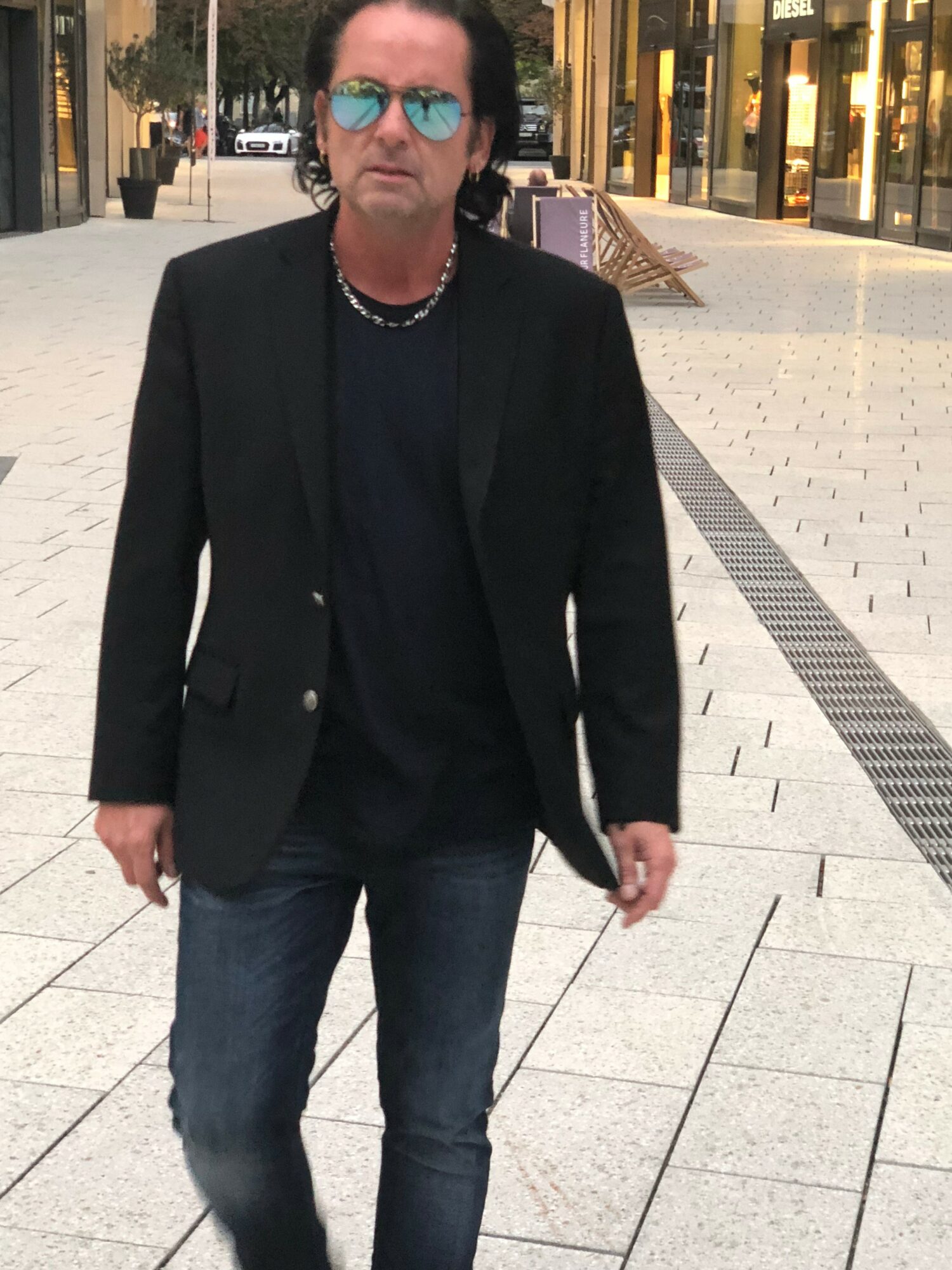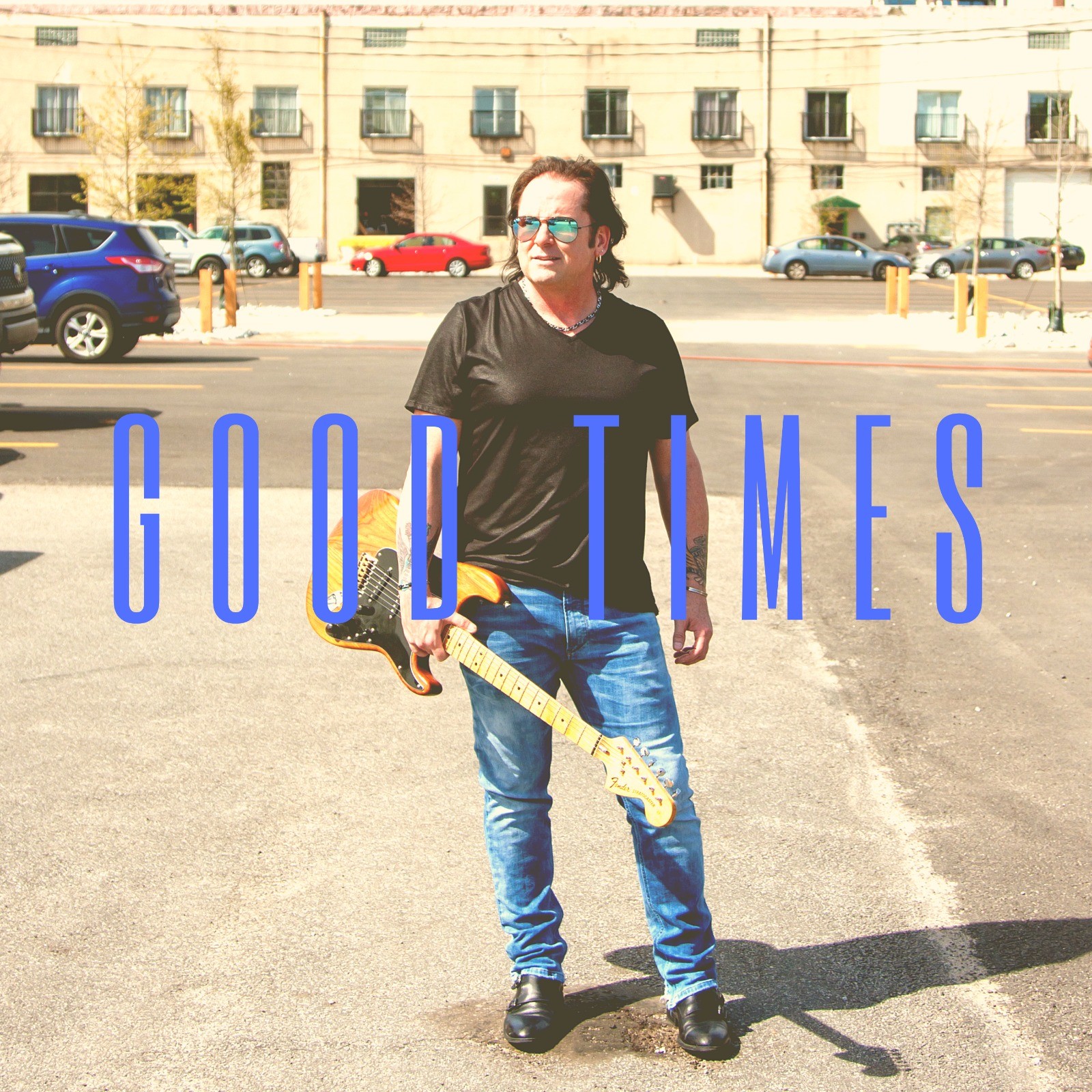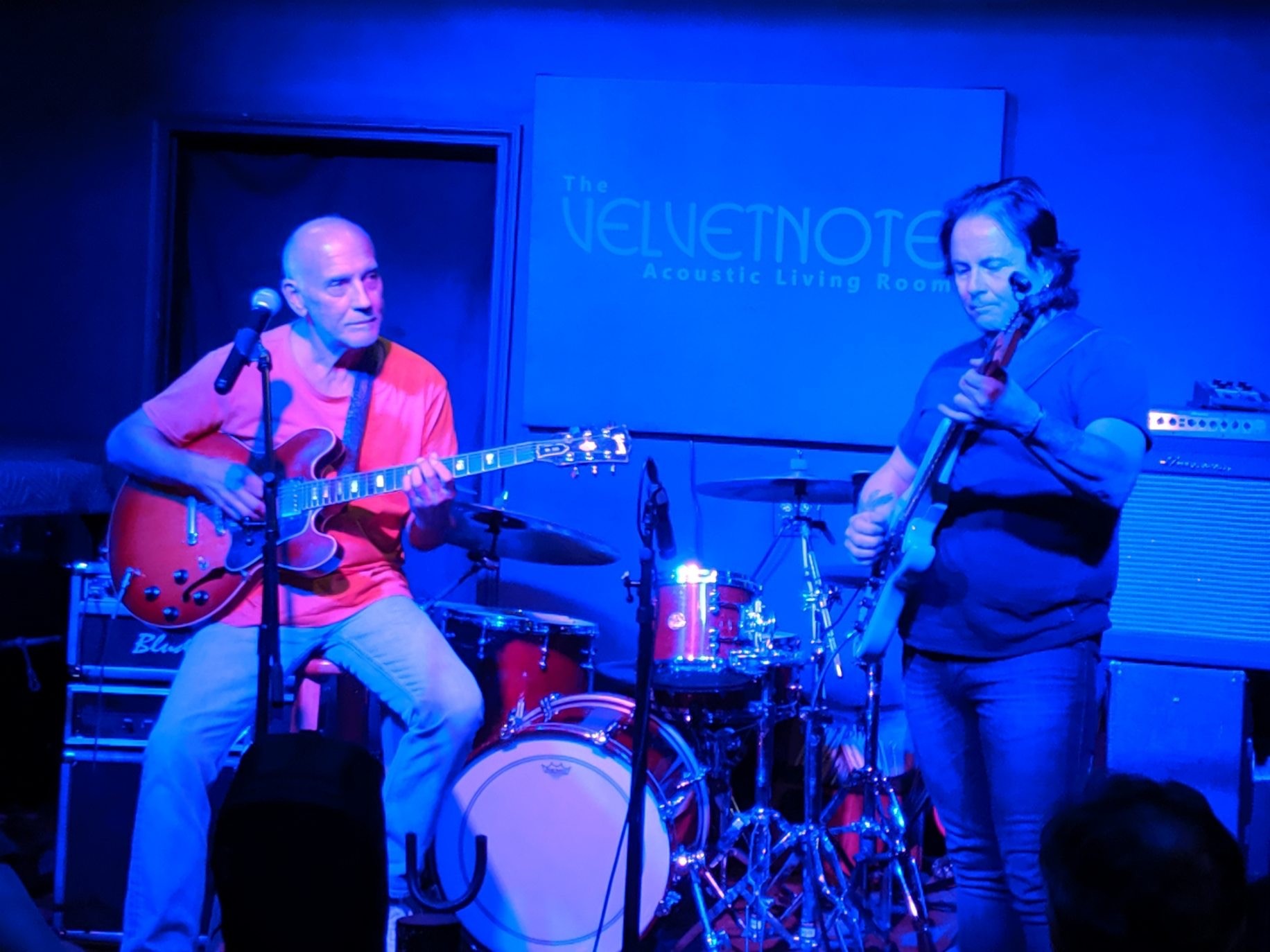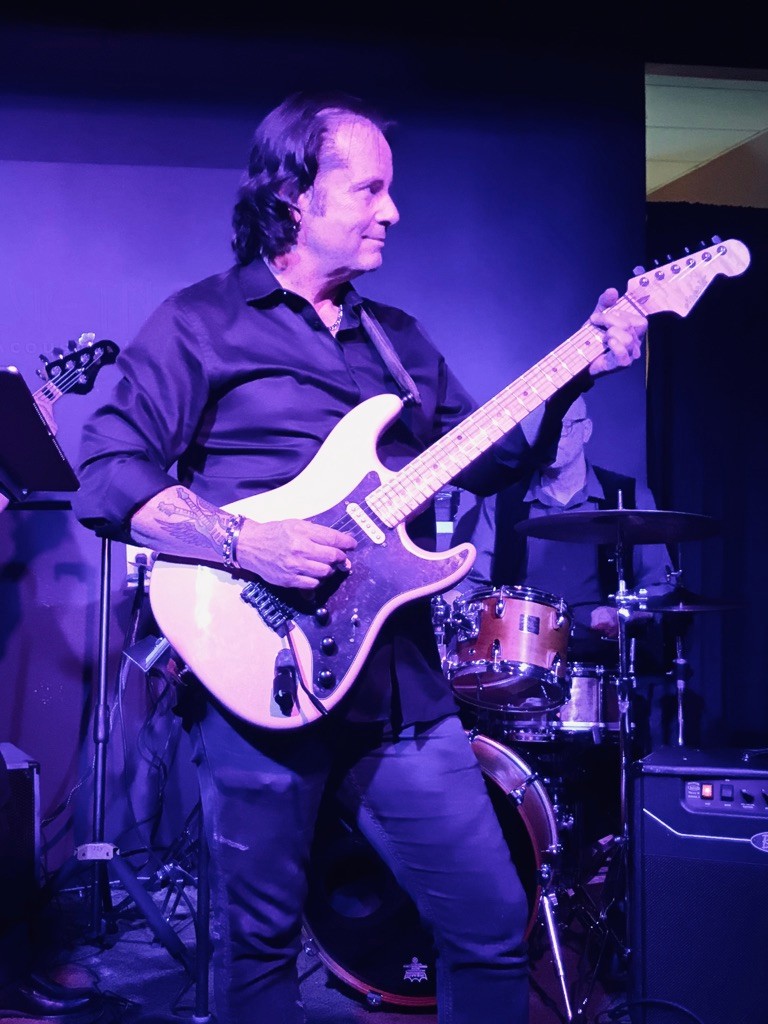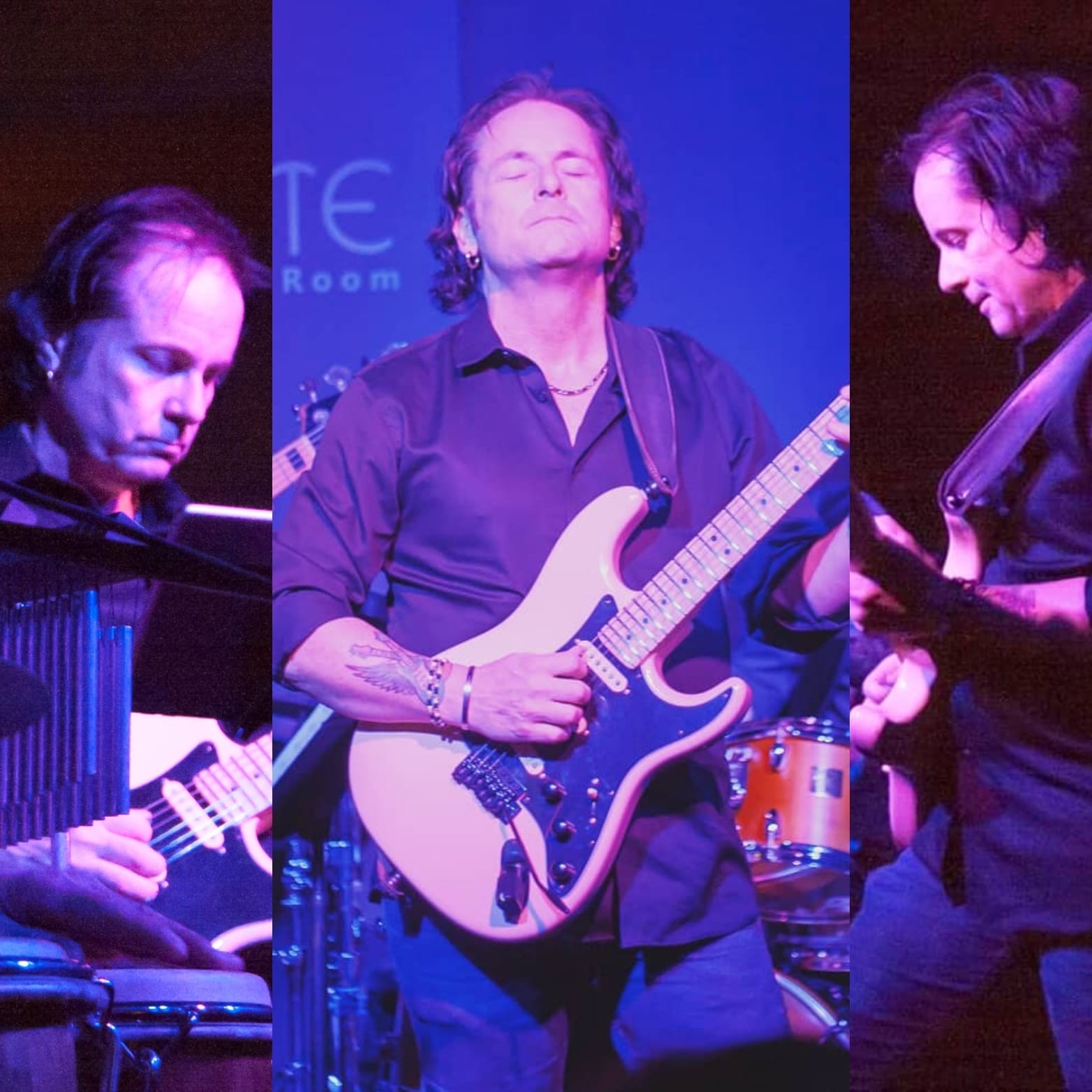

Today we’d like to introduce you to Bill Hart.
Hi Bill, please kick things off for us with an introduction to yourself and your story.
I was interested in guitar at the age of five years old. I was born and raised in Canada. Near the end of the Vietnam war in the United States, I remember the hippies crossing the border to avoid the draft carrying their guitars. That was when I was really exposed to the freedom of being a guitar player. I don’t know why but I was instantly drawn to it and fell in love with the instrument. In my teenage years, I ended up moving to Jacksonville, Florida with my family against my will. I had a very abusive childhood along with a very unstable neighborhood in Jacksonville. I was arrested several times that led me to being deported back to Canada. I left home at the age of 13 and was deported at the age of 15. I have an 8th grade education and never attended high school. Before my time was up in Canada, I returned to the United States. It violated my deportation sentence and I ended up doing time. I received my GED before my release date. I left Jacksonville on a commercial fishing boat and ended up in Newport, Rhode Island where I worked on the boat for about a year. When I return to Jacksonville, I found myself homeless with nothing but a guitar. On my journey, I met a guy named Robert who told me of this school in Los Angeles called “Guitar Institute of Technology” (GIT). It is a subsidiary class of the “Musician’s Institute”. It became my life goal to attend the school. I worked my way through school in Los Angeles doing high-rise window cleaning on the skyscrapers. A tough journey but being street wise worked in my favor. I graduated with (GIT) with honors.
At that time, I was offered a job in Atlanta at a new school called “Guitar Video Workshop” (GVW). It was an affiliation of the school in Los Angeles. Shortly afterwards the school separated from LA and became the “Atlanta Institute of Music”. I was hired as a guitar instructor and helped build the program, by write the curriculum. For 28 years I was head of the guitar department, with an eighth-grade education. I became a successful member of the guitar world. I became good friends with many of the players that were the who of who in the rock and jazz world.
I recorded six CDs with a two-time Grammy nominee. That is my short version of my life as a musician. Being a guitarist and playing music has been my sole purpose in life. For better or worse, it has created good times and got me through bad times. I am still very active in the guitar community today. Not many people know this side of my life. Most people know me as Bill Hart, the guitar player or the biker that plays jazz. My music is more of a fusion of not just styles but culture from players around the world. My rhythm section is from Africa. It is an incredible lesson and keeps me on my toes constantly. My band has been introduced as the Bill Hart “international jazz/fusion” Band.
Alright, so let’s dig a little deeper into the story – has it been an easy path overall and if not, what were the challenges you’ve had to overcome?
It has been a struggle. David Ackert wrote this for the LA Times. It has basically been my mantra. I’ve never heard it put any better than this.
“Musicians are some of the most driven, courageous people on the face of the earth. They deal with more day-to-day rejection in one year than most people do in a lifetime. Every day, they face the financial challenge of living a freelance lifestyle, the disrespect of people who think they should get real jobs, and their own fear that they’ll never work again. Every day, they must ignore the possibility that the vision they have dedicated their lives to is a pipe dream. With every note, they stretch themselves, emotionally and physically, risking criticism and judgment. With every passing year, many of them watch as the other people their age achieve the predictable milestones of normal life – the car, the family, the house, the nest egg. Why? Because musicians are willing to give their entire lives to a moment – to that melody, that lyric, that chord, or that interpretation that will stir the audience’s soul. Musicians are beings who have tasted life’s nectar in that crystal moment when they poured out their creative spirit and touched another’s heart. In that instant, they were as close to magic, God, and perfection as anyone could ever be. And in their own hearts, they know that to dedicate oneself to that moment is worth a thousand lifetimes.” – David Ackert, LA Times.
Thanks – so what else should our readers know about your work and what you’re currently focused on?
What music offers money cannot buy. You must be a strong person to live the life of a musician. I think the difference is if an electrician or plumber won the lottery, they would probably quit work, whereas a musician would buy more music gear and put out more music, even if they go broke doing it. It’s not a job it’s a lifestyle. The lifestyle is what can be challenging whether you’re successful or just middle of the row. The glam and false media that people are exposed to about being a musician is a very small percentage of the truth. I would say my work, or my approach is very much the school of Miles. I come up with an idea and I write a chart, record a demo track. I would feel very self-centered if I was to tell my musicians exactly what to play, and nitpick over small details. The musicians I play with are very “A Class” musicians. They have played their instruments for a lifetime. I would be out of my league telling them how I want them to play. It would be an insult to their spirit. It would interrupt something they may come up with that is very powerful. There is something to be said when you hit the stage and you don’t know what you’re going to play. You’re not really following a chart and there’s no memorized parts per say. Except for the road map of the tune. When you hit the stage, you must dig deep to play what you really feel. To me that is the true art of improvisational music. You must listen to each other, it’s a give-and-take. When that comes together magic happens. That is what keeps me coming back for more. The key is to preserve. Music does something spiritual that is on a different level. When that happens, you may spend weeks or months to achieve it again. Of course, like politics this can be very controversial, there are several paths but this is the path I took.
Can you talk to us a bit about the role of luck?
From my experience and knowing other qualified musicians, it is a very solitude life. Although it may seem like you’re the life of the party and surrounded by people and a rockstar for an hour, it’s the other 23 hours that are in question. The work behind the scenes, composing, booking, getting players, picking tunes, getting paid, financing it, social media, pictures, promotion, writing charts, on the phone, constantly trying to book your band, and if you’re lucky you might have time to practice. The good luck if you will, is I got to a point where players of a very high status like my music and are willing to play it and record on my CD’s.
I still can’t believe this is where I’m at from where I came from.
I believe it is very hard work and persevering.
If there is luck, I would say I am very lucky.
Contact Info:
- Website: http://www.billhartmusic.com/
- Instagram: https://www.instagram.com/BillHartMusic/
- Facebook: https://www.facebook.com/billhartmusic/
- Twitter: https://twitter.com/BillHartMusic
- Youtube: https://www.youtube.com/channel/UCp95irtVvOyS4o21EOE3hQg
